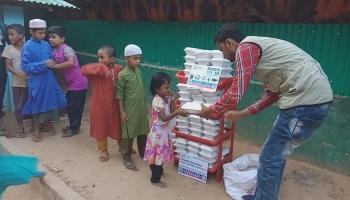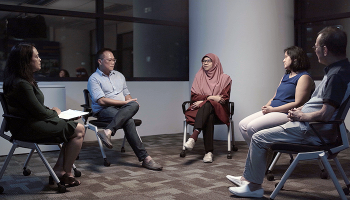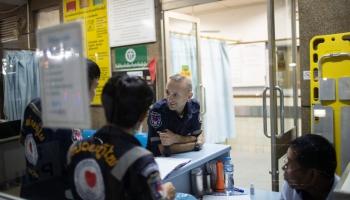A Better Prescription for Refugee Health in Malaysia
Have you ever run for your life? Fled to another country with nothing but the clothes on your back?
That journey might have taken weeks. Or months. Maybe even years. It would have been unspeakably hard. You might have nothing to your name — money, food, ID or anything at all — because your old life would be gone, possibly for good. You’d have to survive, and start again with zero. You’d be devastated. But you — like over 27 million others around the world — would have done it because it would be the only way to stay alive.
You would be a refugee.
Refugees in Malaysia
In 2022, there were more than 183,000 refugees and asylum seekers registered with the United Nations Refugee Agency (UNHCR).
Few—if any—services and subsidies available to residents are afforded to people with refugee status. As a result, many have an extremely difficult time with day-to-day life, as otherwise simple things can present major challenges.
Like going to the doctor.
Refugees in Malaysia have very limited access to healthcare. Treatment is frequently unaffordable, as without working rights, what income refugee families have is often meagre and barely enough for food and shelter. Additionally, navigating the local health system, finding a doctor who will treat them, being able to communicate in the local language, and getting transport to a clinic or hospital, are only some of the myriad other obstacles that refugees face.
Delivering health and hope
This is where Klinik Amal Muhajir (KAM) steps in. Founded in 2020, the clinic brings together a close-knit group of professionals, students and volunteers to give people who have lost everything, a better shot at life. It was one of the first clinics in the country to have translators for Middle Eastern languages, so that refugees from the region could communicate clearly with doctors, and access quality care for a range of health issues. It has made an immeasurable difference to thousands of lives.
Today, KAM serves over 9000 refugees. It is a safe place to seek treatment; refugees are treated with the respect and warmth that they rarely experience elsewhere. For those who have lost homes, loved ones, and the only lives they’ve known, KAM is so much more than a place to heal the body. It also heals the heart. Stories that come out of KAM are not just stories of better health; they are stories of a better future.
About Klinik Amal Muhajir (KAM)
Contributors
Executive Producer
Producer & Writer
Charlene Winfred
Director & Producer
Ibtisem Ben Nassib
Producer
Ismahan Bennassib
Camera & Editor
Sidney Chan
Camera
Hor Chee Yoong
Sound
Estudiovolka
Production Assistant
Saif Umemoto












